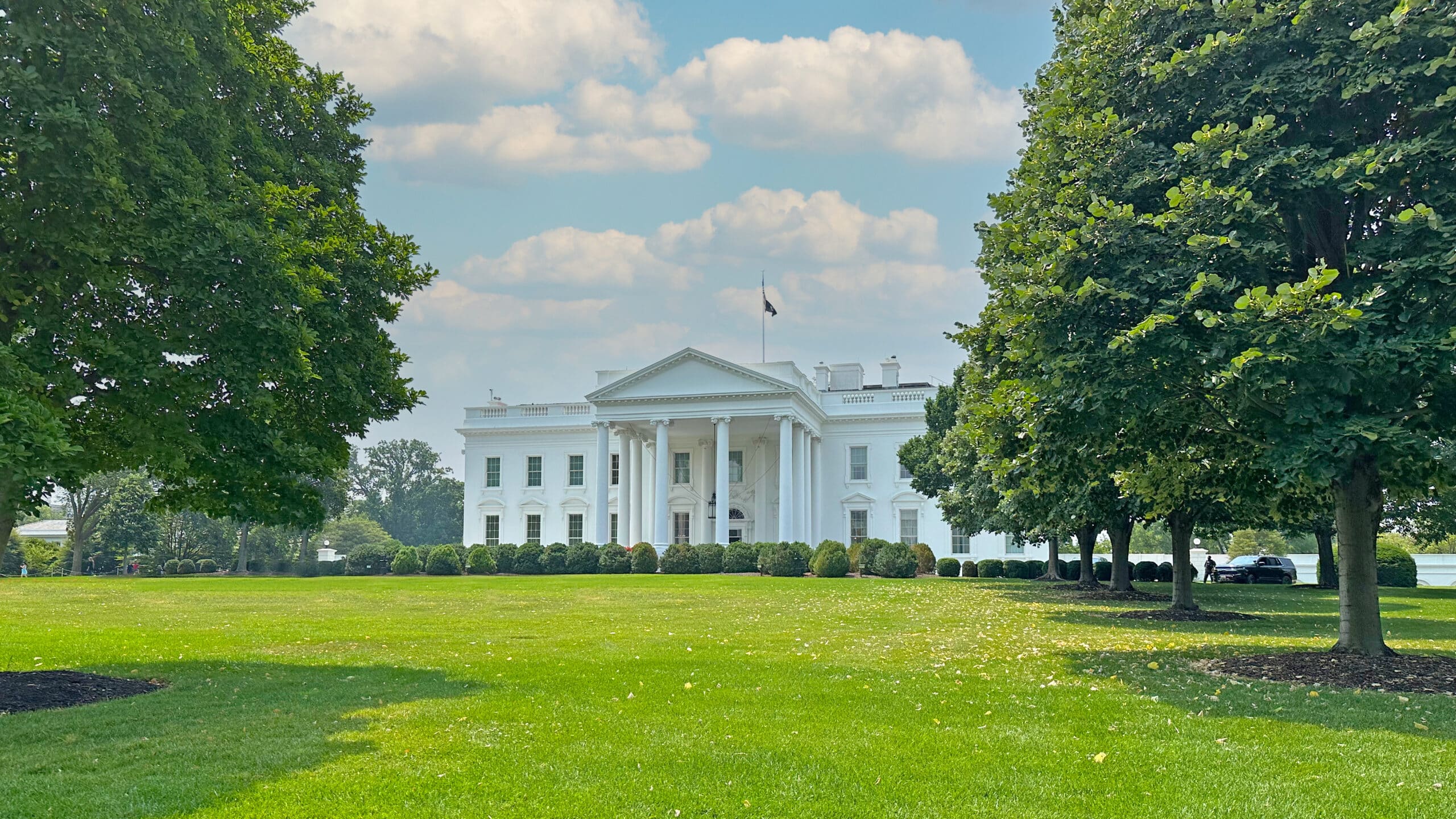Trump Pulling Away From GOP Field, Independents Shifting on President Biden
An Emerson College Polling survey of Arizona voters finds President Joe Biden with a 40% job approval, and 49% disapproval rating. Voters are more split on Governor Katie Hobbs: 40% approve and 42% disapprove of the job she is doing as Governor.
Spencer Kimball, Executive Director of Emerson College Polling, noted: “Biden’s approval is underwater with independent voters at 38%. These voters’ support in 2020 helped Biden shift Arizona to a battleground state, a Democrat winning the presidential election for the first time in Arizona since Clinton in ‘96.”
2024 Presidential Election: Biden and Trump Lead Primaries, Tight General Election
President Biden leads the Democratic Primary with 65% support, while 10% support Robert Kennedy Jr., and 2% support Marianne Williamson. Twenty-one percent are undecided.
In the Republican Presidential Primary, 58% of voters support former President Donald Trump, while 11% support Florida Governor Ron DeSantis, 6% former New Jersey Governor Chris Christie, 4% entrepreneur Vivek Ramaswamy, and 3% support former Vice President and former South Carolina Governor Nikki Haley respectively.
In a 2024 presidential general election ballot test between Trump and Biden, 45% support Trump and 43% support Biden. Nine percent support someone else and 4% are undecided. With third party candidate Cornel West listed on the ballot test, 42% support Trump, 41% Biden, 4% West, 6% someone else, and the share of undecided voters increases to 7%.
“In national and other statewide polling in recent months, West’s candidacy has taken votes away from Biden in the general election, however in Arizona it appears to tighten the race, rather than just reduce Biden’s support,” Kimball noted.
- Hispanic voters, an estimated 19% of the electorate in Arizona, support Biden over Trump 52% to 41%, compared to white voters who break for Trump 46% to 41% and make up an estimated 74% of the electorate.
- Men and women voters in Arizona also break in opposite directions: men for Trump by ten (50% to 40%) and women for Biden by five percentage points (45% to 40%).
2024 US Senate Election: Gallego Leader of Democratic Primary, Plurality of GOP Voters Look to Kari Lake
Voters were presented with a potential list of candidates for the 2024 Republican U.S. Senate Primary. A plurality of Republican state primary voters, 42%, support former gubernatorial candidate Kari Lake. Eleven percent support Pinal County Sheriff Mark Lamb, 7% support former Senate candidate Blake Masters, 2% support Brian Wright and Jim Lamon respectively. Twenty-eight percent are undecided.
In the Democratic US Senate Primary, a plurality of Democratic primary voters (48%) plan to support Rep. Ruben Gallego, while 40% are undecided.
In a head-to-head matchup between Gallego (D), independent Senator Kyrsten Sinema, and Mark Lamb (R), 36% support Gallego, 29% support Lamb, 21% support Sinema, and 15% are undecided. Without Sinema on the ballot, 42% support both Gallego and Lamb, while 16% are undecided.
In the same two ballot tests with Brian Wright, 37% support Gallego, 26% support Sinema, and 25% Wright, and 12% are undecided. Without Sinema on the ballot, 41% support Gallego, 38% Wright, and 21% are undecided.
“It appears Senator Sinema pulls more support from Republican voters than Democrats on the ballot. About 21% of Republicans would vote for Sinema with Lamb on the ballot, and 34% of Republicans would support Sinema with Wright on the ballot,” Kimball said. “By contrast, Sinema only pulls about 8% of Democratic support from Gallego.”
- Between Gallego, Sinema, and Lamb, white voters are evenly split between Gallego and Lamb with 32% each, while 23% of white voters support Sinema. A plurality of Hispanic (44%) support Gallego.
- Of those who voted for Biden in 2020, 71% support Gallego. Of 2020 Trump voters, 57% support Lamb and 27% Sinema.
Economy and Immigration Top Issues for Arizona Voters
Arizona voters find the economy and immigration to be the top issues facing the state, each receiving 22%. Fourteen percent find “threats to democracy” to be the most important issue, 10% education, 9% housing affordability, 6% abortion access, 6% crime, and 5% healthcare.
- Immigration is the top issue for Republican voters at 35%, followed by the economy (25%). Democrats are split between the economy (17%), “threats to democracy” (17%), education (16%), and abortion access (12%). A plurality of independent voters (23%) find the economy to be the most important issue facing Arizona, followed by immigration (19%), and “threats to democracy” (14%).
Voters were asked if they support or oppose a top-two primary system (aka Jungle Primary) for elections, in which voters can cast ballots for any candidate, regardless of party, and two candidates receiving the most votes, regardless of party, will advance to the general election. A plurality of voters (40%) support this system, while 32% oppose a top-two primary, and 28% are unsure.
- Support for a top-two primary system varies by party: 49% of Democrats support the measure and 23% oppose, while 39% of Republicans oppose and 30% support. Independent voters are more split but align closer to Democrats, 43% support and 33% oppose.
- A majority of voters under 30 (54%) support a top-two primary system, compared to 43% of those between 30 and 49, and a third (33%) of voters over 50.
Regarding a ranked-choice voting system, 47% of voters oppose such a voting system in Arizona, while 31% support it, and 22% are unsure.
- Independents flip on the top-two primary system with 46% oppose and 34% support.
- Similar to the top-two primary system, a majority of voters under 30 (52%) support a ranked-choice voting system in Arizona, while support decreases with age: 39% of those between 30 and 49, 20% of those between 50 and 64, and 18% of those over 65.
METHODOLOGY
The Emerson College Polling Arizona survey was conducted August 2-4, 2023. The sample of registered voters, n=1,337, has a credibility interval, similar to a poll’s margin of error (MOE), of +/- 2.6 percentage points. The data sets were weighted by gender, education, race, age, and party registration based on 2024 registration modeling. Modeling is based on US Census parameters and Arizona voter registration and election data.
It is important to remember that subsets based on demographics, such as gender, age, education, and race/ethnicity, carry with them higher credibility intervals, as the sample size is reduced. Survey results should be understood within the poll’s range of scores, and understand with a confidence interval of 95% a poll will fall outside the range of scores 1 in 20 times.
Data was collected by contacting an Interactive Voice Response (IVR) system of landlines, an online panel of voters, and cellphones via SMS-to-web, and a consumer list of emails.
All questions asked in this survey with exact wording, along with full results, demographics, and cross tabulations can be found under the surveys Full Results. This survey was funded by Emerson College.







